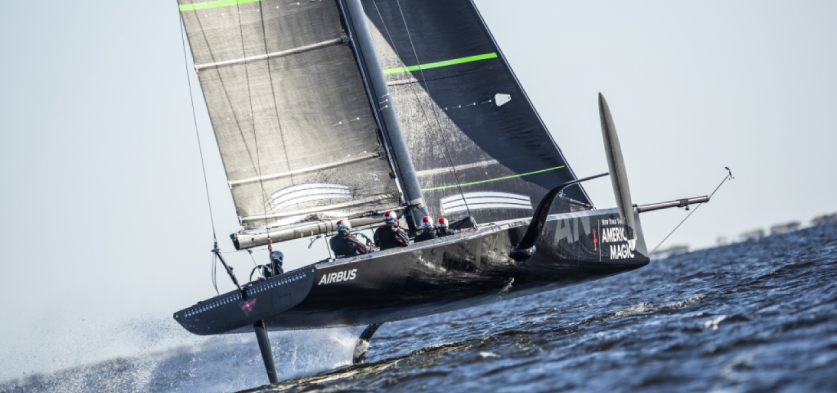Last October, the news of the agreement was published between American Magic, the United States’ option for the 36th America’s Cup, and the aerospace company Airbus as an innovation partner.
The main purpose of the agreement is to contribute to optimizing the future design of the American Magic AC75 to turn it into a state-of-the-art racing boat. Airbus will provide support to improve areas such as simulation development, systems architecture, calculation and optimization of aerodynamics, and on-board measurement and control.
The agreement is based on the assumption that sea and aerospace navigation share very similar needs and therefore technologies. Both the American Magic team and Airbus have the optimization of vessel designs and engineering among their priorities, as well as simulation, data capture and analysis.
But this agreement is not only good news for both teams, but for the entire marine industry. Because, despite the fact that navigation was originally carried out manually, whether for the design and construction of the boat itself or for fixing the position and the navigation route, the truth is that it has always been one of the pioneering fields when it comes to incorporating technological advances -and of any type- that would mean an improvement.
The examples are countless. The compass was the first known navigation instrument, very useful for orientation, and was followed by other instruments for tracing, observation and measurement, such as the gyroscopic compass, astrolabe, the sextant… Until GPS arrived, 3D navigation charts, hull designs optimized by digital simulations, devices that accurately determine the speed and angle of the wind or echo sounders that can locate fish and anything under the boat providing clear images.
Technology has made navigation easier, faster and, above all, safer. But it has not only contributed to technical improvements, but also to health and quality of life on board.
This would be the case with food preservation systems or the watermakers. The latter allow us to maintain good hydration on board either in competitions or on recreational crossings. Having a desalination plant on board a boat allows us to sail with more autonomy, safety and comfort.
All these advances mean that navigation today would be difficult to understand without technology. And apparently, we can go even further.








